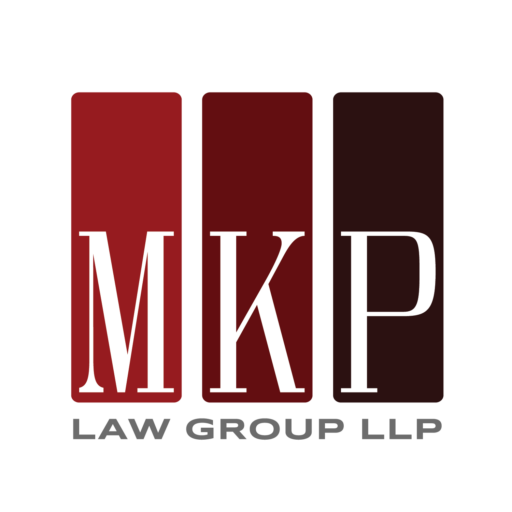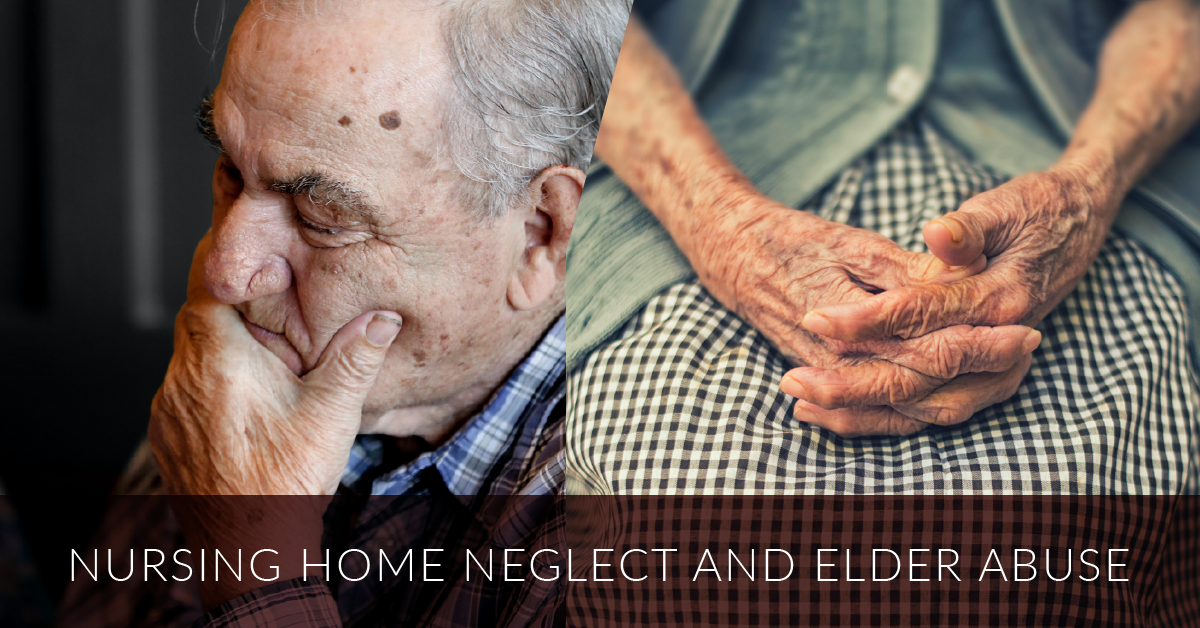Nursing Home Neglect and Elder Abuse Attorney Los Angeles
Protecting All Victims of Los Angeles Elder Abuse and Nursing Home Abuse
At MKP Law Group, LLP, our attorneys are experienced in fighting for elder abuse and neglect victims. For years, we have fought on behalf of clients who have suffered an injury due to the negligence of another party. We realize that it can be difficult to afford quality and experienced nursing home neglect lawyers, so we always work on what is known as a contingency fee basis, meaning WE DON’T GET PAID UNLESS WE WIN.
There are no upfront, out-of-pocket costs to our clients. Our experienced attorneys advocate for and represent nursing home neglect victims and assisted living victims that suffer from elder abuse. We have recovered millions on behalf of our injury clients and will fight hard on your behalf to ensure you get maximum compensation for your injuries.
We want to help you recover and manage the significant financial, physical, and emotional challenges that accompany your injuries. Our Los Angeles nursing home neglect attorneys work with a team of specialized medical experts throughout Los Angeles and California to ensure that you or a loved one receives top-notch medical care for a speedy and healthy recovery while we deal with the insurance companies.
ARE YOU OR A LOVED ONE CURRENTLY A VICTIM OF ELDER ABUSE? IF SO, CALL US IMMEDIATELY AT 310-285-5353.
Our skilled team of Los Angeles elder abuse attorneys represents injury victims throughout the state of California. MKP Law Group, LLP’s team strives to make the process as easy and quick as possible for you. Our experienced team is attentive, dependable, and tenacious so call us today at 310-285-5353 to schedule your 100% free consultation.
Why Hire a Nursing Home Neglect or Elder Abuse Attorney in Los Angeles?
The decision to place a loved one in a nursing home or under the care of others is never an easy one.
When that decision arrives, family members expect their elderly loved ones to receive the best treatment and safest care.
Whether the elderly person is placed into an around-the-clock nursing home or receives assistance from an in-home caregiver, they deserve dignity and respect.
The elderly are often the most vulnerable people in society. When they are mistreated or abused the results can be deadly. The problem is compounded by the fact that the elderly are often isolated and cut off from access to outside help, making them dependent on the very people or organizations that are abusing or exploiting them.
Our elderly family members and loved ones are often incapable of protecting themselves and so they rely on nursing care to meet their basic needs. Unfortunately, elder abuse is a far-too-common occurrence that places our senior citizens at risk of grave physical harm.
When a nursing home or caregiver fails to properly care for or supervise elderly patients the results can be fatal.
If you believe that you or an elderly loved one has been the victim of elder abuse, you need a nursing home neglect attorney’s expertise and experience.
5 Types of Abuse and Injuries Suffered
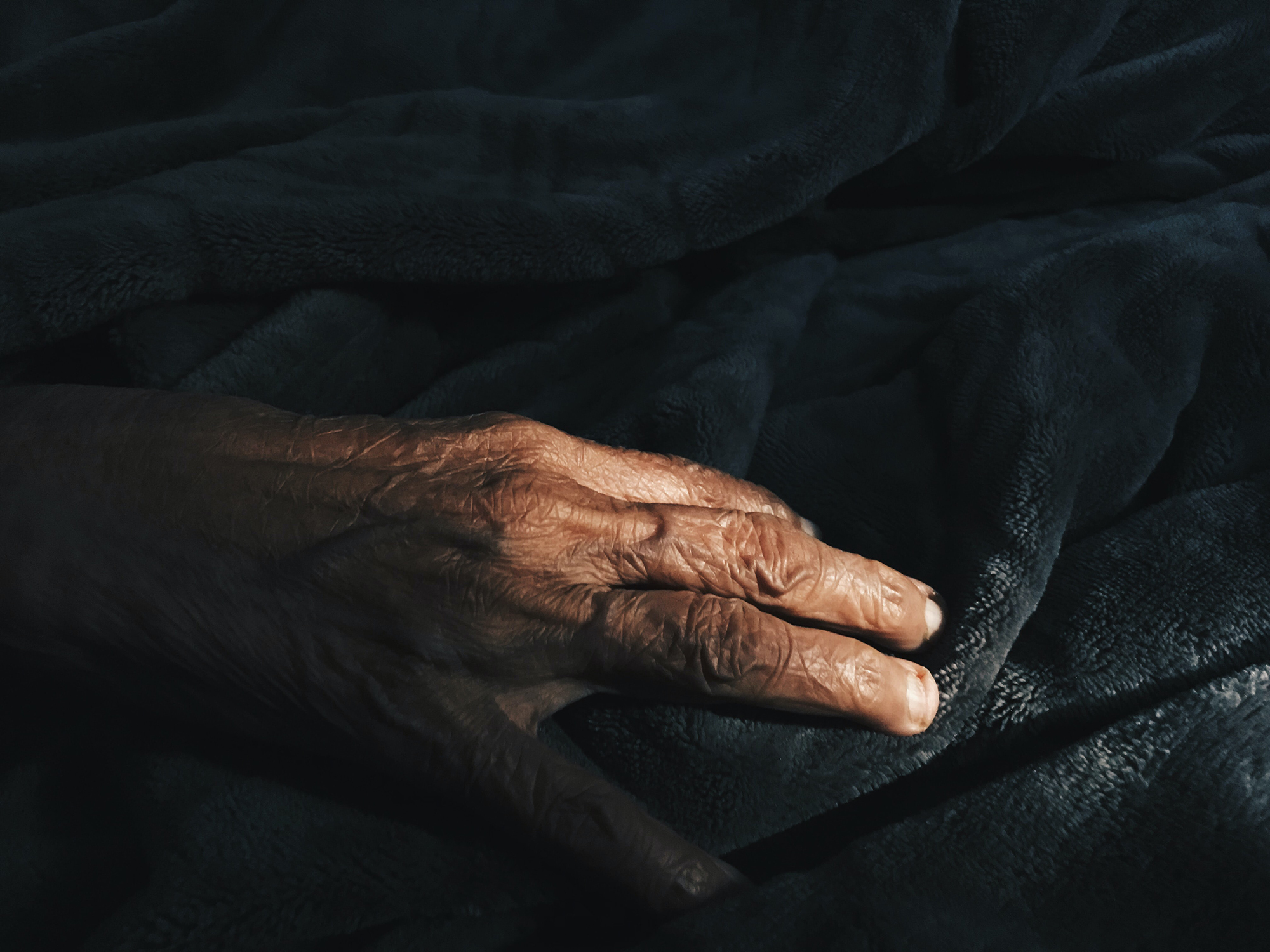
Regardless of type, elder abuse cases often have terrible consequences. These include catastrophic injuries, serious emotional harm, permanent complications, and even death.
The severity of the consequences is why it is important to be aware of and know how to recognize the various forms of elder abuse and nursing home neglect.
There are five common types of elder abuse and nursing home neglect cases:
1. Physical Abuse
Physical abuse against an older person may include striking, slapping, pushing, kicking, tripping, or scratching.
Warning signs for this type of physical abuse include: frequent hospitalization for the same or similar injuries, delayed medical treatment, incomplete or poor explanations for the injury, and discomfort or fear from the elder towards a certain person.
2. Neglect & Abandonment
Neglect and abandonment abuse means the caregiver or nurse fails to adequately tend to the elder and meet their physical and emotional needs.
Neglect does not have to be intentional. Often this type of abuse occurs when a caregiver fails to protect an elder from harm or fails to provide for the elder’s needs in a way that harms the elder.
For example, understaffed nursing homes cannot provide adequate care for the residents and often unintentionally commit this kind of abuse.
Other examples of neglect and abandonment include failure to provide:
- Hygiene
- Medical Care
- Nutrition and Hydration
- Protection from Danger
- Failure to Supervise
- Have Sufficient Staff Members on Duty
3. Verbal, Emotional or Psychological Abuse
This type of abuse includes intentional acts intended to humiliate, insult, intimidate or inflict mental anguish and fear in an elderly person. It is a non-physical form of abuse.
4. Financial Abuse
This involves unauthorized or improper use of a senior’s money, property, or resources. Oftentimes the financial exploitation of a senior is done by someone close to them or in a position of trust.
Common types of financial elder abuse include scams, embezzlement, theft, forgery, or coerced transfers of property.
5. Sexual Abuse
It is terrible to imagine, but sexual abuse of the elderly is a far-too-common occurrence at nursing homes.
Rape is the most serious form of sexual abuse but inappropriate touching, unwanted sexual advances, taking explicit photographs and sexual exhibitions are all forms of sexual abuse.
Elders with dementia are unfortunately more at risk of sexual abuse or exploitation.
Signs of Abuse
It can be difficult to determine whether your elderly loved one has been the victim of nursing home abuse.
While some signs of elder abuse or neglect are obvious, other signs can be harder to notice.
It is not uncommon for elders to suffer abuse or mistreatment for months before their loved ones become aware of the issue. It is essential to watch out for signs and make sure nursing home staff does not falsify or delete records that prove the neglect or abuse.
Furthermore, not every case of elder abuse fits a single profile or pattern. There are common characteristics of each that can serve as red flags.
That is why it is crucial to be on the lookout for warnings signs of abuse which include:
- Dehydration
- Malnutrition
- Weight loss or weight gain
- Bedsores
- Infections
- Open wounds or cuts
- Broken bones
- Dislocated Joints
- Burns
- Tooth Loss
- Falls
- Unsanitary conditions
- Medications not being taken
- Refusing to participate in social activities
- Withdrawn behavior
What to Do if You Suspect Elder Abuse
Elder abuse can be committed by friends, family, caregivers, and professionals. So, it is important to always be aware of and look for signs of elder abuse.
If you suspect someone is abusing you or an elderly loved one you should:
- Keep in Regular Contact with the Elder
- Take Any Accusations Seriously and Record Them
- Call 911 In Case of Emergency
- Contact a Los Angeles Elder Abuse Attorney at MKP Law Group, LLP
California Laws Fighting Against Senior Abuse and Nursing Home Neglect
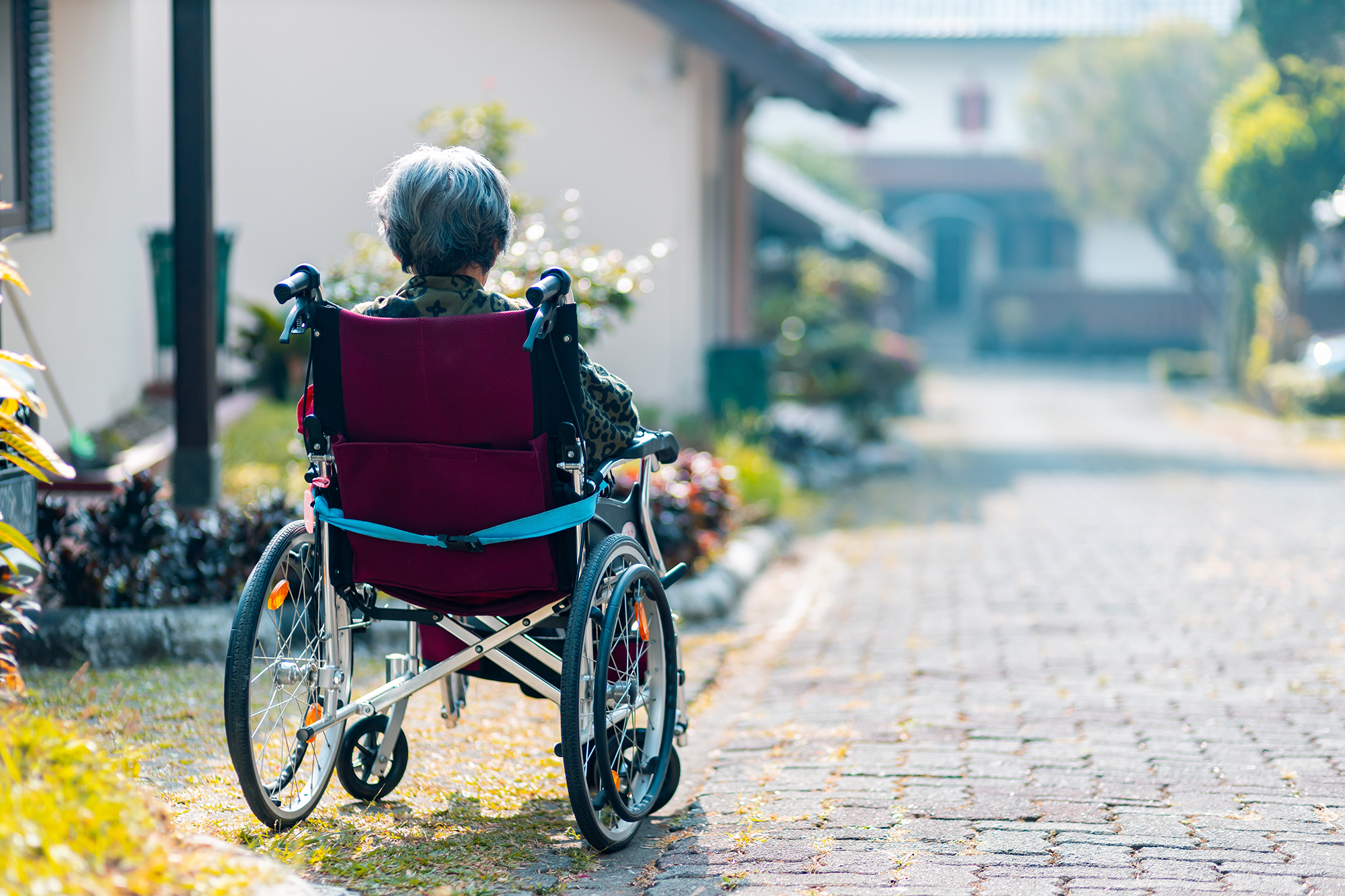
It is challenging to take care of the elderly or a senior with a wide variety of needs. That is why we turn to nursing homes and caretakers. We trust them with that responsibility. It's for this reason that it is incredibly saddening and unfortunate to consider that abuse can occur in these places that should be safe and supportive.
Thankfully, there are many laws in place to protect those placed under the care of others. When it comes to seniors, we have a duty to respect their human rights and protect them from any harm.
Laws are in place because often, victims can be reluctant or even unable to report injury or abuse.
While nobody wants to have to file claims for elder abuse or nursing home neglect, it is our right and responsibility to do so when parties are at fault and causing harm.
If a caregiver or nursing home is abusing their position, and your loved one is suffering from abuse, you need to take action. Your loved one may not be the only one in harm’s way.
California Elder Abuse Laws
California Penal Code Sec. 368 governs elder abuse laws, making it punishable with prison time under certain circumstances. Elder abuse is defined as the physical or emotional abuse, neglect or financial exploitation of a victim who is 65 years or older.
Penal Code Sec. 368 states: any person who knows … that a person is an elder or dependent adult and who … willfully causes or permits any elderly or dependent adult to suffer, or inflicts thereon unjustifiable physical pain or mental suffering … [is guilty of a crime].
Violations of the cited statute can result in either misdemeanor or felony charges, with felony charges carrying a maximum penalty of 4 years in prison.
A dependent adult is any adult who has physical or mental limitations that restrict their ability to carry out everyday activities, and the age range is from 18 to 64. In comparison, an elderly person is anyone 65 and older.
Elder Abuse and Dependent Adult Civil Protection Act
The Elder Abuse and Dependent Adult Civil Protection Act (“EADACPA”) is a statute designed to protect elderly and dependent adults from abuse, neglect, and abandonment. In order to discourage elder abuse and nursing home neglect, the EADACPA provides that a plaintiff may recover attorneys’ fees and punitive damages in cases of egregious neglect or abuse.
Awarding attorneys’ fees and punitive damages are known as enhanced remedies, which impose more significant monetary penalties on the defendant.
According to California Welfare & Institutions Code Sec. 15657(c), enhanced remedies are available against a nursing home or assisted living facility if it is shown that the facility committed any of the following:
Knew, or should have known, that a nurse or caregiver was unqualified or unfit for the position yet still employed that person with a conscious disregard for the safety of others.
Authorized or approved the wrongful conduct of the employee.
A manager or someone in a position of authority at the nursing home or facility was personally guilty of fraud, malice, or oppression.
If the elder or dependent adult dies as a result of abuse or neglect by a nursing home or assisted living facility, the surviving family members can bring a wrongful death action.
The Nursing Home Reform Act
The Nursing Home Reform Act was enacted to ensure that nursing home residents receive the best care possible. The Act enforces quality care and guidelines for the provision of certain services, and it also established a Patient’s Bill of Rights. Among the primary rights afforded to nursing home residents include the right to:
- Privacy
- Be Treated with Dignity
- Communicate Freely
- Accommodations for physical and mental needs
- Exercise Self-Determination
- Participate in One’s Own Care Plan
- Be Free from Physical Restraints
- Participate in Resident Groups
- Be Free From Mistreatment, Abuse & Neglect
- Right to Voice Grievances Without Reprisal or Discrimination
Elder Neglect vs. Medical Malpractice Negligence
A doctor or medical care provider commits medical malpractice when they fail to provide proper care. This includes failing to meet the standard of care expected of a person in their position and an expert with their unique skills, knowledge, training, and ability. If they fail to meet the average practitioner’s level of care in the locality, and when that failure harms the patient, there may be a case for medical malpractice.
Common types of medical malpractice include surgical errors, prescribing the wrong medication, failing to diagnose or misdiagnosis a condition, and failing to treat a condition.
California law caps the amount of pain and suffering damages a victim can obtain under a medical malpractice cause of action at $250,000.00.
Elder abuse cases do not have a cap on damages. These cases also typically have a longer statute of limitations to file a lawsuit.
Oftentimes, elder abuse claims can involve components of medical malpractice, but there is a higher standard of proof needed to succeed in an elder neglect case. Elder abuse must be demonstrated by clear and convincing evidence, which is a higher threshold than the preponderance of the evidence standard that governs medical malpractice cases.
Elder abuse cases are more limited in scope than general malpractice in that they only apply to dependent adults and elderly persons. In contrast, claiming a medical malpractice case is open to any individual.
Elderly Care Facilities: Nursing Homes and Assisted Living
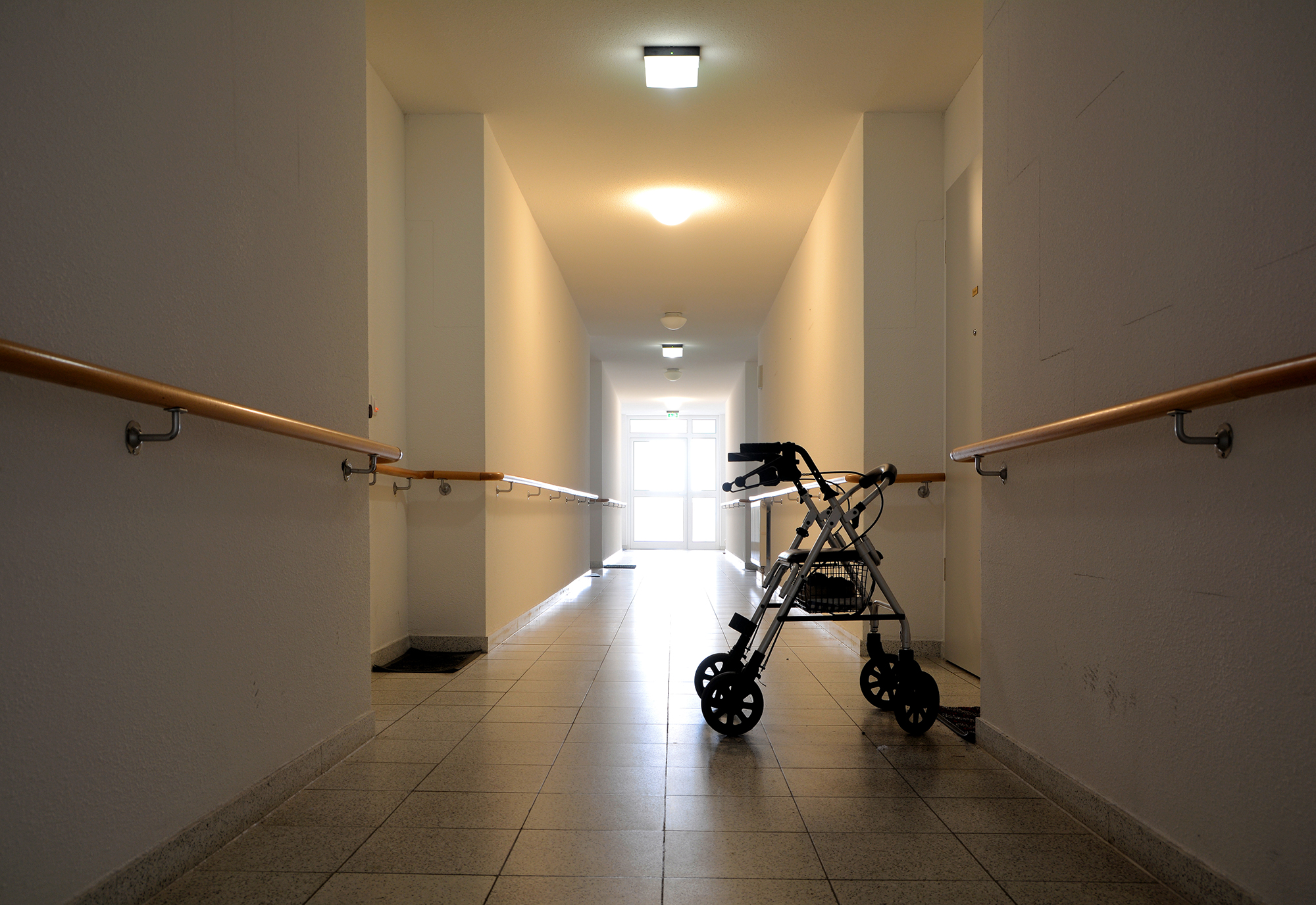 Assisted living facilities are for elderly individuals who are mostly independent but require some assistance with day-to-day life.
Assisted living facilities are for elderly individuals who are mostly independent but require some assistance with day-to-day life.
Nursing homes are generally for seniors who require 24-hour, or near 24-hour, supervision, and care due to physical and mental conditions that prevent the senior from caring for themselves.
Nursing homes are geared towards an individual’s medical needs while assisted living facilities are great options for seniors who cannot live entirely independently but want to maintain a social and active lifestyle.
Assisted Living Facilities
Assisted living facilities generally have fewer residents than nursing homes, so there is a higher staff-to-patient ratio in assisted living facilities.
Services at assisted living facilities include housekeeping, laundry, exercise, and dietary and nutritional services.
Nursing Home Facilities
Nursing homes, also known as skilled nursing facilities, are for seniors who suffer from serious physical or mental conditions that prevent them from living independently. The goal should be to ensure the comfort, safety, and well-being of older adults who require constant, or near-constant, medical supervision.
Nursing homes require licensed physicians who supervise each patient’s care plan. Nurses are also on-site for hands-on assistance and monitoring. In general, these facilities have more medical staff, nurses, and equipment on-site than assisted living facilities since their design is first and foremost to provide medical care.
Services at nursing homes include rehabilitation, on-site nursing, speech therapy, and even hospice care.
All skilled nursing facilities must be licensed by the California Department of Public Health and meet California nursing home standards. Most nursing homes in California are licensed as skilled nursing facilities, which are defined as a health facility that provides skilled nursing and supportive care to persons in need on an extended basis and around the clock.
Nursing homes that choose to participate in Medicare or Medicaid programs must be certified by the federal government in order to qualify for payment. The majority of nursing homes in California participate in these programs.
Contact MKP Law Group, LLP Today for an Experienced Elder Abuse Attorney in Los Angeles
MKP Law Group, LLP is here to stand up to those who abuse elders and get victims the compensation they deserve.
While there are a lot of attorneys out there to choose from, MKP Law Group, LLP has helped many elderly abuse and nursing home neglect victims. We have a proven track record of obtaining results for victims. We know how to aggressively deal with cases involving physical, emotional, and financial abuse in order to obtain optimal settlements.
When the at-fault party is not willing to accept responsibility for their negligence, MKP Law Group, LLP has a team of experienced trial attorneys who will hold the at-fault party responsible in a court of law. If you, an elderly loved one, or someone you know is experiencing abuse or neglect of any kind, call MKP Law Group, LLP today at 310-285-5353 to schedule your free consultation.
Contact Form
Reviews & Testimonials
We work hard to do what's right for our clients. Here are some of the most recent reviews of our bicycle accident legal services.
Read Miles L.'s review of MKP Law Group on Yelp
Read Alejandro G.'s review of MKP Law Group on Yelp
Read Mike R.'s review of MKP Law Group on Yelp
